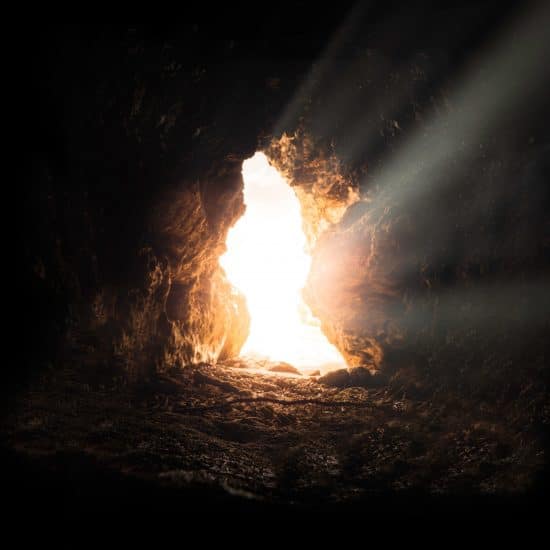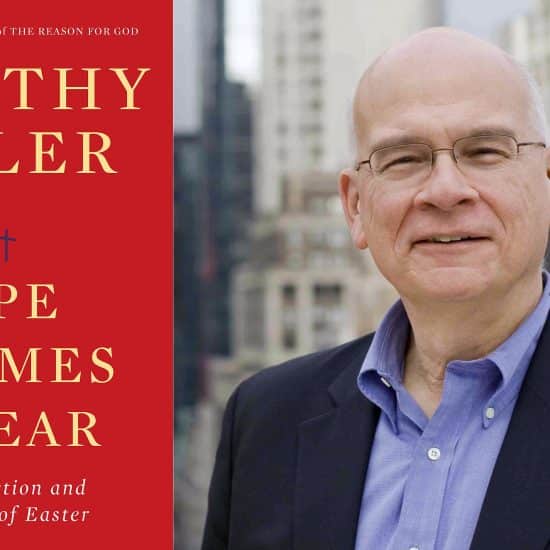 The Hope of Resurrection
The Hope of Resurrection
Formations: November 10, 2019
Scripture: Isaiah 26:12-19; Daniel 12:1-4

Michael K Olmsted
You won’t find much about resurrection in the Old Testament. That was before there was a clear concept of God’s Son becoming one with us, dying on a cross, and rising bodily from the grave. Religion in those ancient times was more concerned with successfully raising a crop, finding enough to eat, avoiding murderous enemies, keeping your family alive, and not making the gods angry. Abraham’s children were on a long journey of hope and truth. They didn’t find God – God found them. Every society has to find ways to survive and then begin the search for truth.
Resurrection is not a major topic in the Old Testament. For several generations the Jews moved from spiritual kindergarten to middle school, sometimes learning wondrous things about God, often confining his greatest blessings to a national identity and destiny. Death was often little more than a shadowy doorway. But they learned, wondered, and sometimes dared to ask, as did Job: “If mortals die, will they live again?” (Job 14:14).
In Isaiah 25:14 the prophet says: “the dead do not live, shades do not rise – because you have punished and destroyed them and wiped out all memory of them.” Not a word of hope there! But later the same prophet declares: “Your dead shall live, their corpses shall rise. O dwellers in the dust, awake and sing for joy!” (Isaiah 26:19). Was that just the hope of Israel’s survival as a nation, or the longing of a people for more than a nether world of darkness?
We forget how blessed we are to have the history and revelation of God’s love unfolding in the saga of Israel and the experiences of the early church after Jesus’ resurrection. We do discover an incredibly nuanced statement of resurrection (so like the New Testament) in Daniel 12:4: “Many of those who sleep in the dust of the earth shall awake, some to everlasting life, and others to shame and everlasting contempt.” Daniel is hungry to know more about this “life after death,” but the revealing angel tells him: “Go your way, Daniel, for the words are to remain secret until the end of time” (12:9).

Image by congerdesign from Pixabay
Throughout the Old Testament there are hints of a resurrection or eternal life as in the beautiful language of Isaiah 40:11: “Like a shepherd He (God) will tend his flock, in his arms He will gather His lambs, and carry them to his bosom; He will gently lead the nursing ewes.” In Jesus’ story of the rich man and Lazarus, the rich man ends up in torment but the suffering Lazarus dies and goes to “Abraham’s bosom” (Luke 16:19-26). There is a clear progression of theology from the Garden of Eden to the second coming of Christ that leads us to the ultimate promise of spiritual life in the grace of God.
The full meaning of God’s grace is not seen until the resurrection of Jesus Christ. That incredible event brings all the rest of God’s written testimony into focus. We may turn to the beauty of the natural world – fields of flowers, majestic mountain sunsets, the progression of seasons, a newborn baby’s first crying – but it is in the death and resurrection of Christ that we fully see God’s gift of life.
Reading the brief narratives of Jesus death and resurrection, plus the struggles of the early church, prove that life in the eternal dimension can only be by a miracle of God. Resurrection means God is real beyond our human theories and philosophies.
The Isaiah text we read today would fit comfortably in the New Testament as it compares the pains of childbirth to faith in this challenging world and promises “your dead shall live, their corpses shall rise … O dwellers in the dust, awake and sing for joy!” (Isaiah 26:19). Daniel states: “your people shall be delivered, everyone who is written in the book” … “many of those who sleep in the dust of the earth shall awake, some to everlasting life, and some to shame and everlasting contempt” (Dan. 12:1-2). Those words are both hopeful and sobering, a reminder that life is a journey of choices and that beyond the doorway of death, there is more.
Scholars agree that the book of Daniel, although describing the lives of people in the sixth century BC, was written during the reign of Antiochus IV, a Greek king of Syria in the second century BC when the Jews suffered terrible persecution and the Jerusalem temple was desecrated. Daniel is calling his people back to God’s promises and presence. A “great prince” and “protector” of the people will appear (Dan. 12:1). Biblical faith does not promise a life in this world will be easy and prosperous. Faith calls us to trust in the God who is ever faithful, the God who will ultimately judge and open before us a new world where truth and hope are the norm. The idea of heaven as a place of mansions on golden streets may be superficially attractive, but life cannot be reduced to such shallow incentives. We catch glimpses of life’s deepest meaning in the majesty and beauty of nature and in the wonders of unselfish love. We marvel at the concept of grace, perfectly embodied in God’s Son, our Savior. Like the original readers of Isaiah and Daniel, we long for hope in a world that is shattered by violence and selfishness.
The bottom line today is the same as in Isaiah and Daniel’s day: will you trust God in this troubled world? The years in this world cannot compare to eternity. Dying with the most toys is not winning. Living by God’s love and grace offers us blessings and hope. We all leave a legacy based on our choices. Even in what we might call “primitive faith” in God there is a clear directive that faith must be real in our actions and relationships or it is just religion. We may be good at formulating religions, but God’s love in Christ makes all these other cultural fantasies of no real use to the human heart.
The longings of Isaiah, Daniel, and the people called Israel was to know the God who became real to Abraham, Moses, and all their remarkable leaders. They often lost their way in the struggles of life. They suffered the consequences. But God reached out to them again and again. God never faltered in his love, ultimately giving himself to us in Christ. I suspect that even if we had a spectacular vision in the sky of God’s heaven, we would still struggle in the mire of the world. It’s not in the promise of heaven or resurrection glory that our lives will be changed, but in the Jesus who is God’s love as he stretches out his arms on the cross and dies for all. This is our hope of resurrection.
Formations is a curriculum series from Smyth & Helwys Publishing, Inc. through NextSunday Resources.
The PDF download requires the free Acrobat Reader program. It can be downloaded and installed at https://get.adobe.com/reader (uncheck optional offers first).



